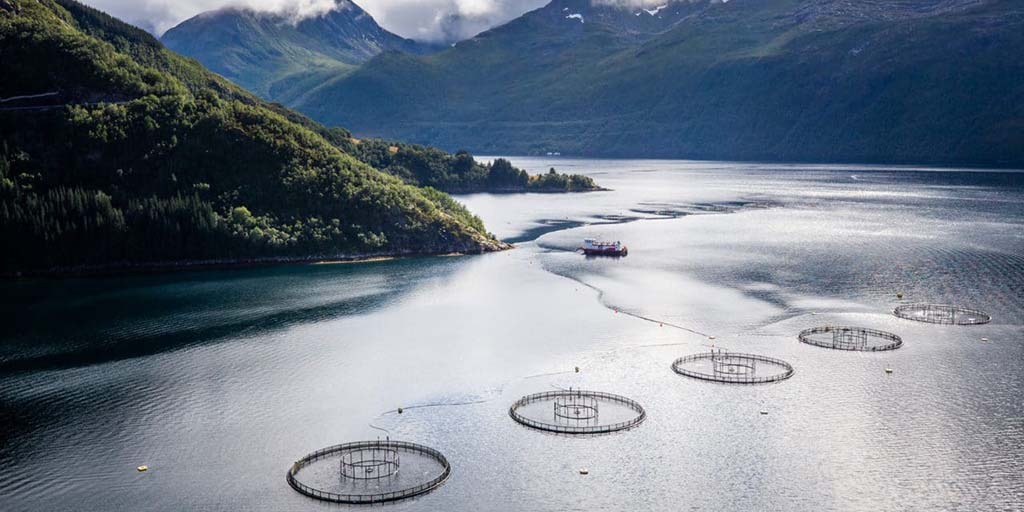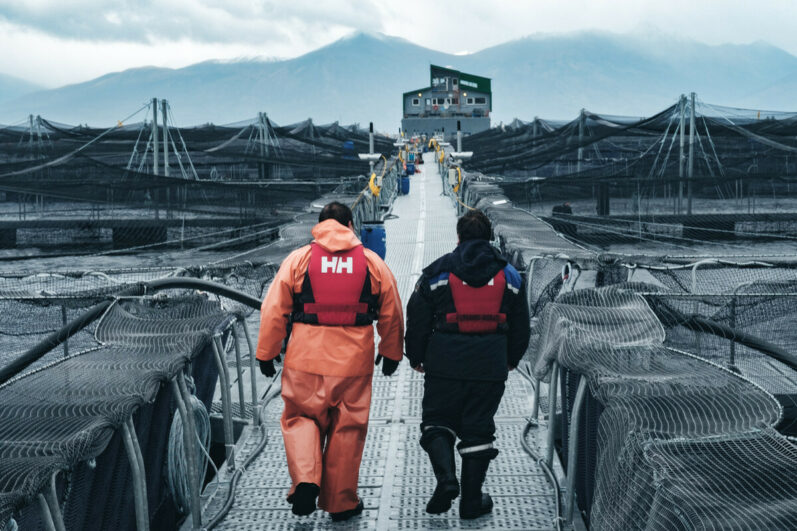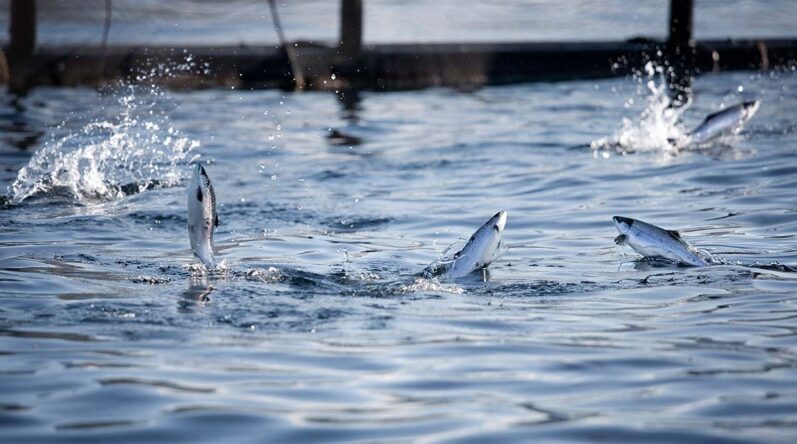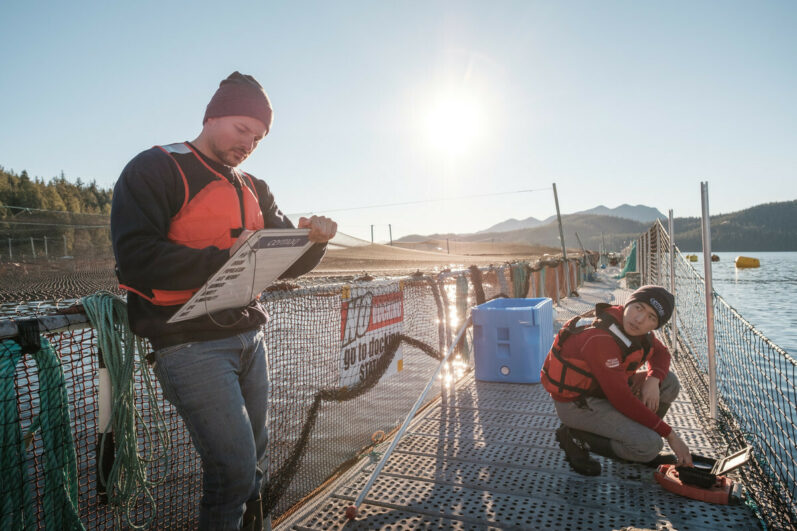Ensuring Optimal Salmon Health and Welfare Through Best Antibiotic Practices

Similar to humans and other animals, there are illnesses that can affect farmed salmon. To ensure our fish remain as healthy as possible, our salmon farmer members will, when advised by veterinarians, use a variety of medicines - including antibiotics - to ensure optimal fish health and welfare. It is our goal within GSI to reduce the use of antibiotics and continually improve welfare best-practices to enable a more holistic approach to health management.

GSI members work to ensure optimal health of welfare of the fish under their care.
What’s the role of antibiotics in salmon farming?
Antibiotics can be a helpful tool supporting fish health, when necessary, and are used in salmon farming when diseases pose a risk we cannot manage preventatively. When our fish are affected with a troublesome disease (such as Salmon Rickettsial Syndrome or SRS), we follow regulatory and fish health expert advice to treat them with antibiotics to help restore health as safely and quickly as possible.
It’s important to note that all farmed salmon are produced and sold in line with global health guidelines and regulations, and when antibiotics can be found in trace amounts in farmed fish species these amounts are far below the levels deemed safe by agencies such as the U.S. Food and Drug Administration. Additionally, when compared to other animal proteins, our salmon farming members use the least amount of antibiotics to treat disease.

GSI members follow fish health expert advice to treat their salmon with antibiotics.
What is the concern over antibiotic use?
While we are committed to responsible use of antibiotics, it is still important that we continue to find ways to reduce their use. This is because global health experts from the World Health Organization (WHO) and others have warned of the danger of overusing antibiotics across the food system and in human health. These experts have highlighted that through overuse, antibiotics become less effective, and resistance may occur both in animals and in humans. For this reason, it is of upmost importance that antibiotics used in salmon farming and the food sector more widely are reduced and eliminated where possible, and we move towards alternative, holistic approaches to health management.

GSI members are committed to decreasing the use of antibiotics.
What is GSI doing to reduce antibiotic use in farmed salmon?
Through our knowledge sharing platform and the support of external experts, our members work collectively to ensure responsible antibiotic use where it is necessary and drive an overall reduction in its use.
We have initiated and continue to support several programs with this goal in mind, including:
- Working with the Aquaculture Stewardship Council (ASC) standard to ensure responsible antibiotics use
- Ensuring all antibiotic use is as directed by veterinarians and is always in line with local and global regulations
- Transparently reporting on antibiotics use per company per region via our annual Sustainability Report
- Continually evaluating and updating industry best-practices on antibiotic use
- Supporting a more holistic approach to fish health management, including the trialing of non-medicinal methods
- Working with the pharmaceutical industry to accelerate the development of effective vaccines
Many of our members also play an active role in wider initiatives, such as a collaborative project with the Monterey Bay Aquarium Seafood Watch to reduce the use of antibiotics in Chile by 50% by 2050 and the Pincoy Project run by Skretting to help collect and share knowledge on the use of antibiotics in aquaculture.
What progress is being seen?
We are pleased to see that our members’ efforts are demonstrating measurable progress, with GSI members seeing a reduction in average use of antibiotics by 60% since 2013, and some members have removed it from their operations entirely.
There is still more to be done, however. We will continue to prioritize this topic in our working groups by innovating to find new solutions, and measuring, and transparently reporting on our progress. That way, we can continue to learn from each other how to reduce the use of antibiotics in a sustainable way and continue to ensure our salmon live healthy lives.






Follow us on social media and sign up for the newsletter
X
Threads
LinkedIn
Instagram
YouTube
Newsletter